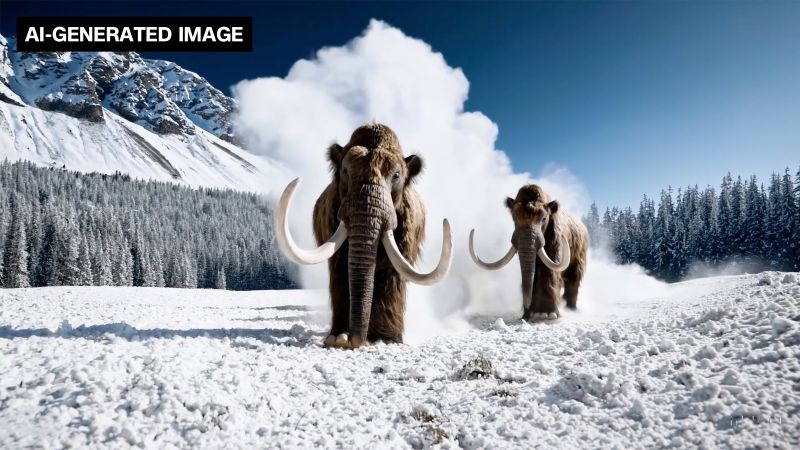OpenAI Introduces Sora: AI for Video Creation from Text
Khái niệm cốt lõi
OpenAI introduces Sora, an AI model capable of creating realistic 60-second videos from text prompts, aiming to revolutionize digital entertainment markets with personalized content.
Tóm tắt
OpenAI's new AI model, Sora, can generate 60-second videos from text instructions, focusing on real-world interactions and personalized content creation. Despite its strengths in accuracy and length, the model still has weaknesses in spatial details and cause-and-effect relationships. OpenAI emphasizes safety by working with experts to address potential harms like misinformation and bias while granting access to cybersecurity professionals and creative artists for feedback.
Sora: OpenAI will now let you create videos from verbal cues | CNN Business
Thống kê
OpenAI claims Sora can create "realistic" and "imaginative" 60-second videos.
The model serves up scenes with multiple characters, specific motion types, and detailed background details.
Reece Hayden from ABI Research highlights the impact of AI models on digital entertainment markets.
OpenAI acknowledges weaknesses in spatial details and cause-and-effect relationships.
Trích dẫn
"One obvious use case is within TV; creating short scenes to support narratives." - Reece Hayden
Thông tin chi tiết chính được chắt lọc từ
by Samantha Mur... lúc www.cnn.com 02-15-2024
https://www.cnn.com/2024/02/15/tech/openai-text-to-video-sora/index.html
Yêu cầu sâu hơn
How might the introduction of Sora impact the future of video content creation?
The introduction of Sora by OpenAI could revolutionize the way video content is created in the future. By enabling users to generate realistic and imaginative 60-second videos from text prompts, Sora opens up new possibilities for content creators. This AI model's ability to understand and translate text instructions into visual scenes with multiple characters, specific motions, and detailed backgrounds can streamline the video production process significantly. Content creators may leverage Sora to quickly prototype ideas, visualize concepts, or even produce entire short scenes without extensive manual labor. As a result, we may see an increase in personalized and dynamic video content across various platforms as more professionals adopt this technology.
What are potential ethical concerns associated with using AI models like Sora in entertainment industries?
While AI models like Sora offer exciting opportunities for innovation in entertainment industries, they also raise significant ethical concerns that need careful consideration. One major concern is the potential misuse of generated content for spreading misinformation or creating harmful narratives. With AI's capability to fabricate realistic videos based on textual inputs, there is a risk of malicious actors exploiting this technology to deceive audiences or manipulate public opinion through fake visuals. Additionally, issues related to bias and representation could arise if not addressed properly during training data selection or model development phases. Ensuring transparency about how AI-generated content is produced and implementing safeguards against unethical use cases will be crucial steps in mitigating these ethical challenges.
How can advancements in generative AI models like Sora influence storytelling across various media platforms?
Advancements in generative AI models such as Sora have the potential to transform storytelling practices across diverse media platforms by offering new tools for creative expression and audience engagement. These AI models enable storytellers to bring their ideas to life visually through automated scene generation based on textual descriptions, expanding the possibilities for narrative exploration and visualization. By leveraging technologies like multi-modal models that combine text-to-video capabilities with sophisticated understanding of physical world concepts, creators can enhance their storytelling techniques with immersive visuals that resonate with viewers on a deeper level.
Furthermore, generative AI models like Sora can empower storytellers across different mediums – from film and television to interactive experiences – by providing them with efficient ways to prototype scenes, experiment with visual styles, or generate custom animations tailored to specific narratives. As these technologies evolve and become more accessible within creative industries,
we may witness a shift towards more personalized and interactive storytelling experiences that blur traditional boundaries between mediums while captivating audiences in novel ways.
0
